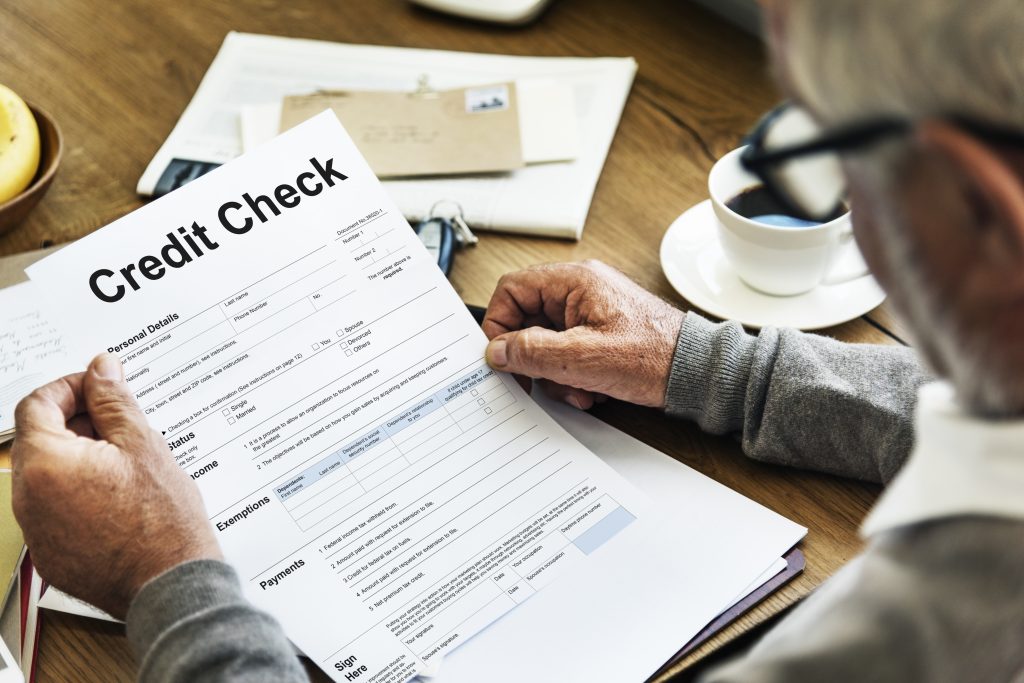
Let’s take a look at the types of bad credit loans available in Florida. From personal loans to payday loans and more, there is a variety of options out there. However, it’s important to remember that not all loans are the same. Some may seem attractive initially but could turn out to be more problematic in the long run. That’s why it’s crucial to conduct thorough research and carefully review all terms before making a commitment.
So, what does this important number represent? It’s similar to a recipe with various factors carrying different weights. Payment history is crucial – lenders want to know if you’ve been paying your bills on time. Then there’s credit utilization, which assesses how much of your available credit you’re using. The length of your credit history also matters because it indicates how long you’ve been managing debt responsibly.
But here’s the thing: having a low credit score doesn’t mean you’re out of luck when it comes to getting a loan. It’s more like a cautionary signal for lenders, prompting them to proceed with care. In Florida, there are many lenders who specialize in working with people who have less-than-perfect credit. The key is knowing where you stand and being upfront about your situation.
Having a lower credit score may seem concerning, but it’s important to remember that it’s just one part of your financial picture. Your credit score reflects your past, but it doesn’t dictate your future. By making an effort to borrow responsibly and manage your finances well over time, you can work on improving your score.
Keep in mind that lenders consider more than just your credit score; they also take into account factors such as your income, employment history, and overall debt. Even if your score isn’t ideal at the moment, there are still potential options for securing loans in Florida, especially if you find the right lender and are open about your financial situation.
Personal loans are a popular option for people with less-than-perfect credit. They are a versatile financial tool that can be used for various purposes, such as consolidating debt or covering unexpected expenses. The important thing is to find a lender who specializes in working with borrowers in your credit range.
If you’re worried about having very bad credit, there are lenders who specifically cater to those with poor or even no credit history. However, you should be aware that you may face higher interest rates and fees. Therefore, it’s crucial to carefully review the terms and conditions and ensure that you can comfortably manage the repayment terms.
Payday loans offer a swift solution for those in need of immediate cash, often without the stringent credit checks associated with traditional loans. Think of them as a short-term financial lifeline, ideal for emergencies where speed is of the essence. However, it’s crucial to proceed with caution.
Payday loans typically come with high interest rates and fees, making them a costly option if not repaid promptly. These loans are usually due on your next payday, hence the name, which means the repayment period is quite short. It’s important to ensure you can repay the loan on time to avoid falling into a cycle of debt.
Installment loans present a more structured and predictable option for those with bad credit. Unlike payday loans, which require a lump sum repayment, installment loans allow you to repay the borrowed amount over a set period in regular installments. This makes budgeting easier and helps manage your finances more effectively.
Installment loans often come with more favorable terms compared to payday loans, but it’s still essential to shop around for the best rates and conditions. Many lenders specialize in offering installment loans to individuals with bad credit, providing a viable pathway to cover larger expenses without the immediate pressure of a payday loan’s short repayment period.

Before hitting “apply,” it’s crucial to understand what lenders are looking for. While specific requirements can vary, there are some common criteria you’ll need to meet. First, most lenders want proof of steady income – whether from a job, self-employment, or other sources. They’ll also check your debt-to-income ratio to see how much you’re already managing.
Your credit score will matter as well, but don’t worry if it’s not great – that’s why bad credit loans exist. Lenders understand that life happens, and they’re more interested in your current financial situation and ability to repay the loan. So be ready with documents like bank statements and pay stubs.
Once you’ve checked those boxes, it’s time for the application itself. This part can feel a bit overwhelming because you’ll need to provide personal information, employment details, income specifics, and existing debts. It’s like giving lenders a peek into your financial world.
The key here is preparation: have all necessary documents handy before you start filling out forms. And if you run into any issues or have questions along the way, don’t hesitate to ask your lender for help. They want you to succeed just as much as you do.
After submitting your application, there comes waiting time while they review everything you’ve provided. The lender will reach out if they need more info or once they’ve made their decision. If you’re approved, congratulations! You’re one step closer to getting funds despite a less-than-perfect credit history. Just make sure to carefully review the terms and conditions before signing anything.
Let’s talk about interest rates. Simply put, this is the cost of borrowing money, shown as a percentage of your loan amount. The higher the rate, the more you’ll pay over time. For bad credit loans, these rates are usually higher because lenders see you as a bigger risk.
The good news is that interest rates vary from lender to lender. So, it’s worth shopping around instead of jumping at the first offer you get. Compare different rates and terms to find what suits you best. Sometimes a slightly higher rate might be worth it if it comes with flexible repayment options or fewer extra fees.
Let’s discuss fees—additional charges that can catch you off guard if you’re not careful. Lenders may impose origination fees, processing fees, and penalties for late payments, among others.
It’s important to carefully review all the details and ask questions if anything is unclear. Make sure to understand exactly what you’ll be paying for and how those costs are calculated upfront to avoid surprises later on. Also, feel free to negotiate; some lenders might be willing to reduce or waive certain fees, especially if you have a steady income or can make a larger down payment.
With your documents ready and an understanding of what lenders are looking for, next up is filling out those applications—time for some patience. Most lending processes are online these days which makes things quicker but requires careful attention so no detail is missed.
This step isn’t just about proving yourself; it’s also about making sure this lender is right for you too. Feel free to ask questions regarding their terms or customer service practices—it’s important that their offerings align with what works best for both parties involved.

Improving your credit profile is one of the best ways to increase your chances of getting approved for a loan. It may seem counterintuitive when you have bad credit, but taking small steps can make a big difference. Simple actions like making on-time payments and decreasing your credit utilization ratio demonstrate to lenders that you are managing your debt responsibly.
It’s akin to preparing for a marathon – you wouldn’t expect to run 26 miles without any training. Improving your credit takes time and effort, but each positive step brings you closer to better loan terms and a higher likelihood of approval.
Lenders prefer to see a stable income as it assures them that you can manage monthly payments. If your regular sources of income are insufficient or inconsistent, consider alternative options such as freelance work, side gigs, or rental income from property.
It’s essential to properly document these income streams for the lenders. Keep thorough records and gather all the required paperwork so that you can clearly explain how this additional cash flow benefits you. This could be the crucial factor in securing approval.
Obtaining a bad credit loan in Florida may not always be straightforward. However, with smart strategies and some creativity, you can navigate the process more effectively. Stay persistent and open-minded – that desired loan might be within closer reach than you realize.
Before exploring loan options, take a moment to ask yourself why you need this loan. Are you looking to consolidate debt, cover an emergency expense, or finance something major? Clarifying your goals will help narrow down which type of loan makes sense for you.
Think of it like packing for a trip – you’d pack differently for a beach vacation than for hiking in the mountains. Once you’re clear on where you’re headed (so to speak), it’s easier to map out how you’ll get there.
With your goals in mind, start shopping around. Don’t settle for the first lender you find. Instead, compare interest rates, fees, repayment terms, and any extra perks or drawbacks they offer. It’s similar to test-driving cars before deciding which one suits you best.
Remember that just because lenders specialize in bad credit loans doesn’t mean they’re all alike. Some may have more flexible qualification criteria or offer better rates depending on your credit range. Doing thorough research and reading the fine print carefully pays off.
If something seems unclear as you’re weighing options or if terms don’t sit well with you, ask questions or negotiate them. A good lender will explain things clearly and work with you towards finding solutions that fit within your budget and align with your goals. Think of it as forming a partnership; feeling confident about this path is crucial.
Of course! Having limited or no credit history doesn’t mean you have no options. There are lenders in Florida who specialize in working with borrowers in your situation. The key is to be upfront about your circumstances and find a lender who understands your unique financial journey.
Think of it like starting a new job – you might lack direct experience, but you can highlight other strengths and your willingness to learn. When it comes to bad credit loans, lenders will likely consider factors such as income stability, debt-to-income ratio, and overall financial responsibility. So even if your credit report is sparse, you can still demonstrate your ability to manage loan payments responsibly.
The tradeoff? You’ll probably encounter higher interest rates or fees initially. However, view it as an opportunity to build credit history from scratch. Make all your payments on time, and before you know it, you’ll have a strong track record that opens more doors down the line.
It’s important to be cautious about taking on too much debt, particularly with higher interest rates. However, there are ways to borrow responsibly and avoid falling into a cycle of debt. It all comes down to being realistic about what you can afford and having a solid repayment strategy in place.
Before signing any loan agreement, carefully evaluate your budget. Take into account not only the monthly payment amount, but also the interest charges over the entire loan term. It’s important to be honest with yourself about what’s manageable in the long term without stretching your finances too thin.
Having a specific plan for using the loan funds efficiently can also be beneficial. For example, if you’re consolidating debt, ensure that the new interest rate actually saves you money compared to your current payments. If the loan is for a major purchase, consider putting more money down upfront to reduce the overall borrowing costs.
The key is to approach bad credit loans with awareness and a commitment to paying off the principal balance as quickly as possible. With discipline and careful planning, you can use these loans to rebuild your credit rather than allowing them to weigh you down like an anchor.
Facing a loan rejection can be disheartening, but there is hope. You can take steps to improve your chances of approval and position yourself as a stronger borrower.
First, carefully review your credit report for errors and areas needing improvement. Disputing inaccuracies, paying down debts, and making all minimum payments on time can have a significant impact. Essentially, it’s like thoroughly cleaning your financial house before putting it on the market.
Next, consider ways to increase your income or demonstrate additional revenue streams to show lenders that you have enough cash flow to comfortably handle new loan payments. Maybe you can take on a side job or document your freelance work. Be creative and ready to explain these income sources in detail.
Finally, be strategic about where you apply and how you present your application materials. Research lenders specializing in bad credit situations and flexible qualification criteria. When applying, give clear documentation and be transparent about your financial situation – lenders appreciate honesty.
The path to loan approval may have obstacles, but by staying persistent and taking proactive steps, you can get there. Consider each rejection as an opportunity to reassess your approach and come back stronger next time.
When searching for a bad credit loan, it can be overwhelming to sort through the many available options. However, there are effective methods to help you find the perfect fit. Start by identifying your primary goal for the loan, whether it’s consolidating debt, covering an unexpected expense, or financing a major purchase. This initial step will help narrow down the options.
Next, consider your specific priorities. Do you prioritize a low monthly payment or a shorter loan term with higher payments? How important is flexibility in the repayment schedule? Clarifying your priorities will make it easier to evaluate the available options.
Once you have a shortlist of potential loans, dive into the details and thoroughly analyze the numbers. Look beyond just the interest rate and consider the overall costs over the entire loan term, including fees and penalties for late payments. This comprehensive approach can reveal the best overall value.
Remember, the right bad credit loan exists for your needs. By understanding your goals and carefully analyzing the numbers, you can find the perfect fit. Don’t hesitate to ask lenders plenty of questions along the way.
In today’s digital world, protecting your personal and financial information is crucial, especially when you’re sharing sensitive data during a loan application process. Your concerns are valid, but there are steps you can take to safeguard your privacy and identity.
First and foremost, only work with reputable, established lenders who have robust security measures in place. Look for companies that use data encryption, secure servers, and other advanced cybersecurity protocols. A professional lender should be upfront about their privacy policies and data handling practices.
As you’re filling out applications, be extremely cautious about where you’re entering sensitive information like your Social Security number. Never provide these details over unsecured public WiFi networks or on unfamiliar websites. Stick to secure, private internet connections that you trust.
It’s also wise to regularly monitor your credit reports and bank statements for any suspicious activity. Many institutions offer fraud alert services to quickly flag potential issues. And if you do notice anything amiss, act quickly to mitigate potential damage.
While the digital lending landscape requires some added vigilance, you can absolutely find a balance between convenience and privacy protection. Do your research, follow best practices, and don’t hesitate to ask lenders about their specific data security protocols. With some common sense precautions, you can confidently pursue bad credit loans while keeping your information under lock and key.